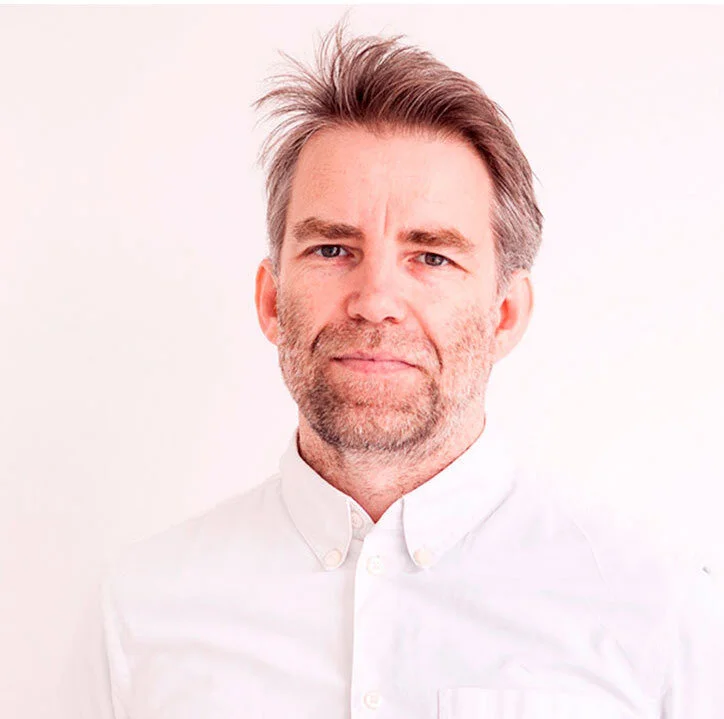Haenke x Designblok 2021
Nature by Design: Achieving (Worldwide) Happiness through Sustainable Practice
Thursday 7 October, 16.30 CET | online
This year's Designblok's main theme is HAPPINESS. But in the midst of the pandemic aftermath and the ongoing climate crisis, what does it actually mean to be happy? And more importantly, what WILL that mean in a few years' time? This panel unites five artists and creatives from architecture, design and fashion who introduce their practice - in which they embrace sustainability, circular economy or nature-based solutions - and discuss how sustainability in design could help overcome current global challenges.
with guest speakers:
Jan Boelen
,
Atelier LUMA (France)
Jan Boelen (b. 1967, Genk, Belgium) is artistic director of Atelier Luma in Arles, France. In 2001 he founded Z33 House for Contemporary Art in Hasselt, Belgium, and headed the Master department of Social Design at Design Academy Eindhoven in the Netherlands. Boelen currently acts as rector of the Karlsruhe University of Arts and Design (HfG) in Germany and was curator of the 4th Istanbul Design Biennial in Turkey in 2018. He serves on various boards and committees including the advisory board of the V&A Museum of Design Dundee in the UK and Creative Industries Fund in the Netherlands.
Alexandra Georgescu
,
KOGAA (Czech Republic)
Alexandra has 10 years of experience in the architecture and design field. She holds a Masters Degree in Interior Architecture at the prestigious Piet Zwart Institute in Rotterdam and has studied in Italy, UK, and Denmark. She then worked in Beijing at CLOU architects, and in Milan at Studio Brioschi, before opening her own practice, KOGAA, in the Czech Republic. With a keen interest for design and event management, Alexandra is the founder and organizer of design festival Brno Design Days, taking place on an yearly basis and acting as the main design event in the City.
In 2020 Alexandra has lectured at RIBA, the Royal Institute of British Architects on the topic of alternative approach to development, and in 2020 her practice was selected by Dezeen Awards among the top twenty architecture practices in the world. In 2019 the studio won the main prize for workspace design at the BIG SEE awards for their Distillery Social Reactor project, and in 2018 they were chosen as the top ten emerging architecture studios by Archipreneur magazine.
Nienke Hoogvliet
,
Studio Nienke Hoogvliet
(the Netherlands)
Studio Nienke Hoogvliet is a design studio for material research, experimental and conceptual design. They use design as a tool to shape new perspectives. The studio consists of the founder Nienke Hoogvliet (1989) and Tim Jongerius (1988), and is based in The Hague, The Netherlands.
Since the studio was founded in 2013 they have a main focus on materials that can contribute to a more holistic world. The projects raise awareness of social and environmental problems in the textile, leather and food industry. By creating innovative alternatives they hope to change perspectives and systems.
The work of Studio Nienke Hoogvliet has been exhibited worldwide in institutions like Artipelag, Stockholm | Centre Pompidou, Paris | Centraal Museum, Utrecht | Cooper Hewitt Design Museum, New York | Textielmuseum, Tilburg | Victoria & Albert Museum, London.
Gaja Meznaric Osole, Andrej Koruza
,
Trajna
(Slovenia)
Symbiocene is a nomadic platform, set up to question our design abilities and sensibilities, to experiment and produce work that works outside and beyond the anthropocentric and capitalist production of our everyday realities. Continuously evolving, it aims to explore the potentials of interspecies collaboration and look for ways to encourage symbiotic relationships within the contexts in which it operates.
The platform was set up by design duo Gaja Mežnarić Osole and Andrej Koruza who work within the Trajna collective. Trajna is a non-governmental organisation which works towards supporting solidarity and cross-species co-sustainment by initiating commprojecty economies, creative research, organising workshops and designing eco-infrastructure. At the moment Trajna is focusing on developing creative and sustainable solutions for invasive species management.




